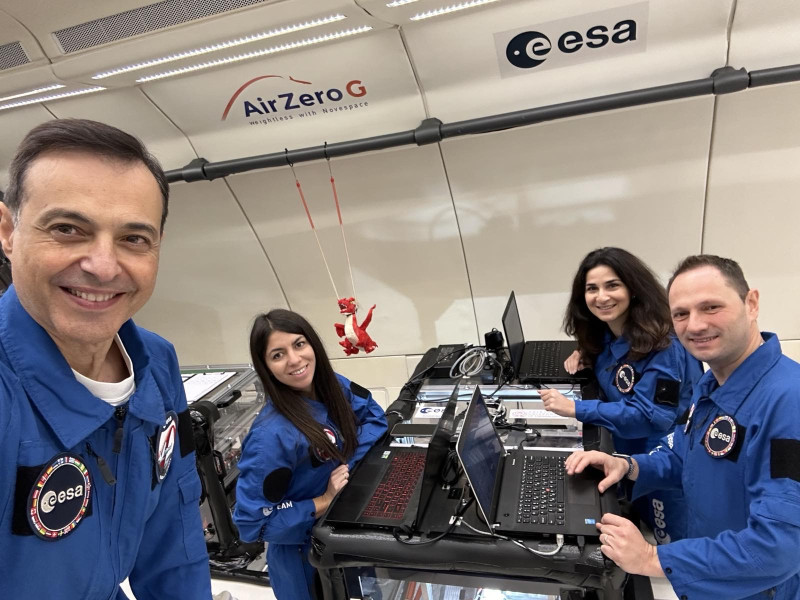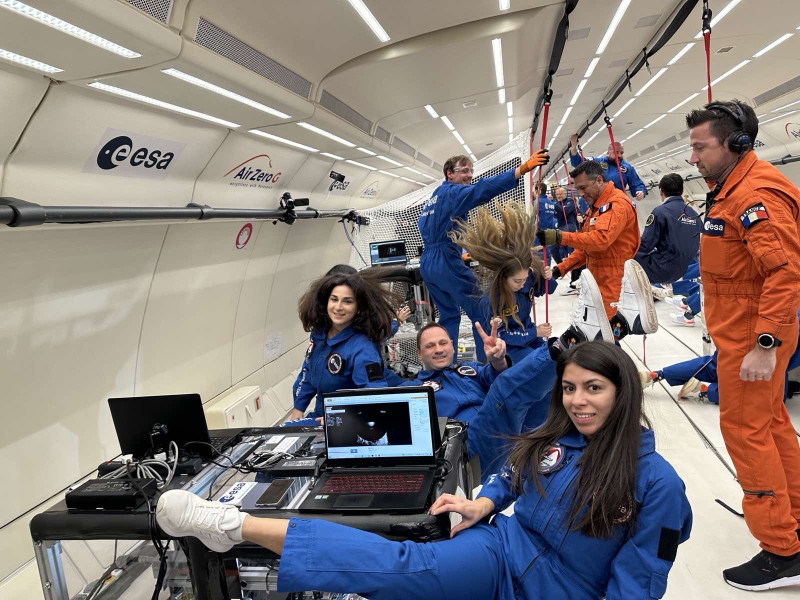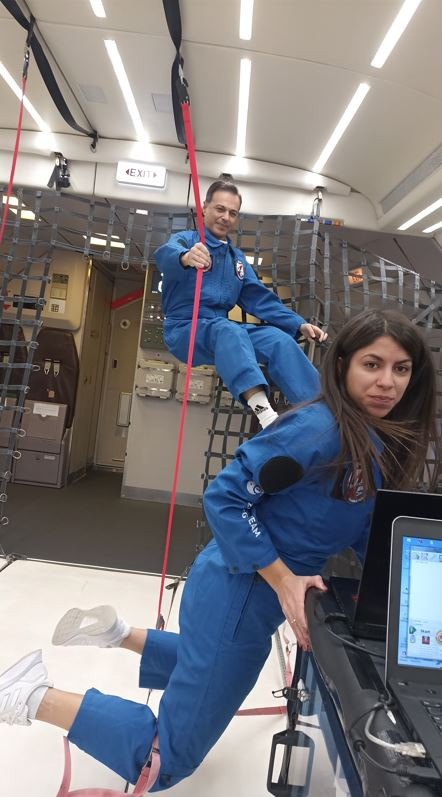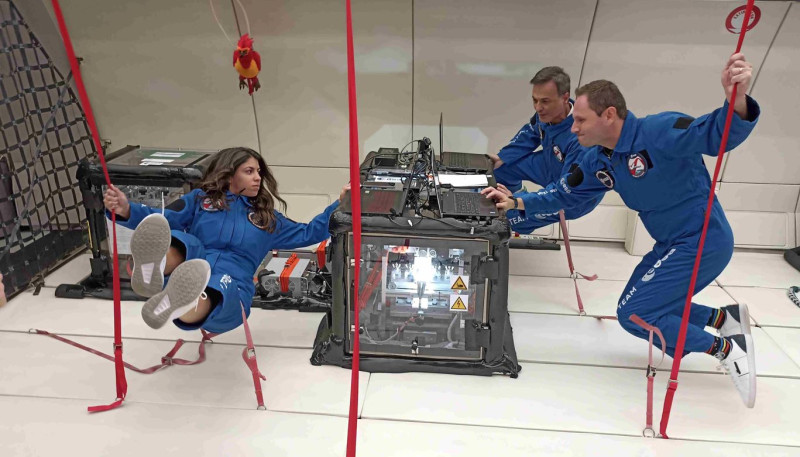This is the “Low-g emulsions” experiment of the Dynamics of Multiphase Systems group of the Department of Chemistry of the AUTH, for the study of the stability of emulsions in conditions of zero gravity, which is carried out in the context of the Parabolic Flight Campaign of the European Space Agency (ESA)
A purely Greek experiment started on Monday (27/11) and will be completed on Friday (1/12) over the Atlantic Ocean, in zero gravity conditions. This is the “Low-g emulsions” experiment of the Dynamics of Multiphase Systems group of the Department of Chemistry of AUTH, for the study of the stability of emulsions in weightless conditions, which is carried out in the context of the Parabolic Flight Campaign of the European Space Agency (ESA).
The AUTH team led by AUTH Chemistry Department professor Theodoris Karapantsio is considered one of the most experienced in Europehaving already flown a total of 10 European Space Agency parabolic missions with total dwell time in weightlessness over 5.5 hours.
In this Parabolic Flight Campaign, the flying team of AUTH apart from Mr. Karapantsiou consists of flight operators dr. Sotiris Eugenides, Dr. Ourania Oikonomidou, and Aggeliki Chondrou (doctoral candidate) and from the ground support team Margaritis Kostoglou (professor of the Chemistry Department, AUTH) and Triantafyllos Tsilipiras (Technician, AUTH).
“Plunges over the Atlantic”
Parabolic flights take place over the Atlantic Ocean from Bordeaux, France. The zero-gravity conditions are achieved inside a specially configured airplane (Airbus A310), which on each of the flight days performs 31 consecutive steep ascents and descents (dives), following a flight path in the shape of a parabola.
To achieve zero-gravity conditions the parabolic aircraft must perform the dives in airspace with little or no turbulence. This means that the flight has an indefinite duration, as weather conditions can change at the last minute and while the aircraft is already heading to an area. Participating teams are selected by ESA following an evaluation based on strict scientific criteria, while the technical specifications and safe operation of each experiment are checked by specialized staff, who visit the groups in their laboratories throughout their preparation.
“The Greek mission, with its participation in a cutting-edge research program, conveys at the same time a strong message to the scientific – and not only – community inside and outside the borders: That Greece has the appropriate specialized scientific potential to perform demanding experiments and produce high quality scientific work. At the same time, however, the message is also given to our young people, that Greece has not lost the possibility of being a place of opportunities and this has a strong symbolism as a means of stopping the flight of young scientists abroad, which our country has experienced in recent years”. said Mr. Karapantsios to APE-MPE.
“The importance of the experiment”
The aim of each experiment participating in parabolic flights is to take advantage of the 25 seconds of zero gravity in each of the 93 comparisons performed in total over the 3 days of flights, so that she can study the natural phenomenon that interests her
The importance of the AUTH team’s experiment, as noted by Mr. Karapantsios, lies in principle in the scientific significance of the results collected in zero gravity conditions. “In particular, the experimental results show the mechanisms by which emulsions of particular stability can be prepared, even with the use of a small amount of chemicals (surfactants) as long as the appropriate emulsification conditions are chosen”the professor explained.
The experiment is purely Greek, and in fact of AUTH, both in the design and construction of the experimental set-up, as well as the scientific team that handles the device inside and outside the vessel during the flights. It is part of a very large research program for the study of emulsions (SMD-PASTA) of the European Space Agency, which has been ongoing for months on the International Space Station in orbit around the earth with an active role of the team of the Chemistry Department of the AUTH and participation of teams from Universities and Research Institutions from the USA, Germany, France, Italy and Japan.
“Emulsions and their applications”
The experiments in the experimental set-up of the AUTH concern the study of the dynamic behavior of drops of organic liquid (oily phase) within a continuous aqueous phase. Emulsion is defined as the dispersion of droplets of one liquid in another liquid, with the two liquids not mixing with each other.
Emulsions are widespread in nature, but also used in a variety of applications. They are found in insecticides and herbicides, detergents, lubricants, paints and varnishes. They also find applications in food and cosmetics while they are suitable carriers for the controlled transport of active substances (medicines and pesticides). Finally, in recent years emulsions have played an important role in the recovery of oil from rocks.
Source: Skai
I have worked as a journalist for over 10 years, and my work has been featured on many different news websites. I am also an author, and my work has been published in several books. I specialize in opinion writing, and I often write about current events and controversial topics. I am a very well-rounded writer, and I have a lot of experience in different areas of journalism. I am a very hard worker, and I am always willing to put in the extra effort to get the job done.














